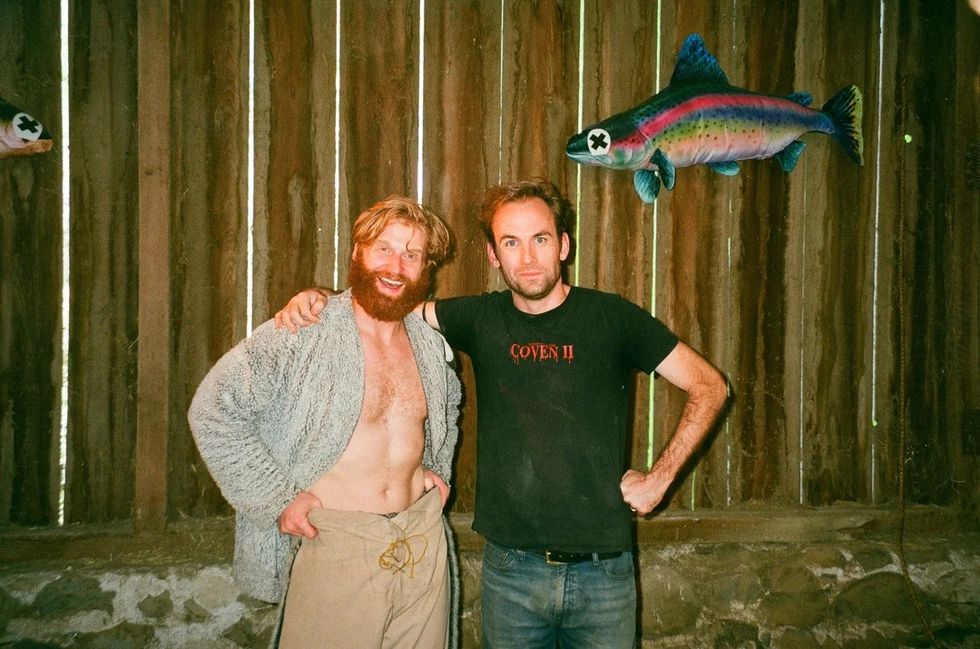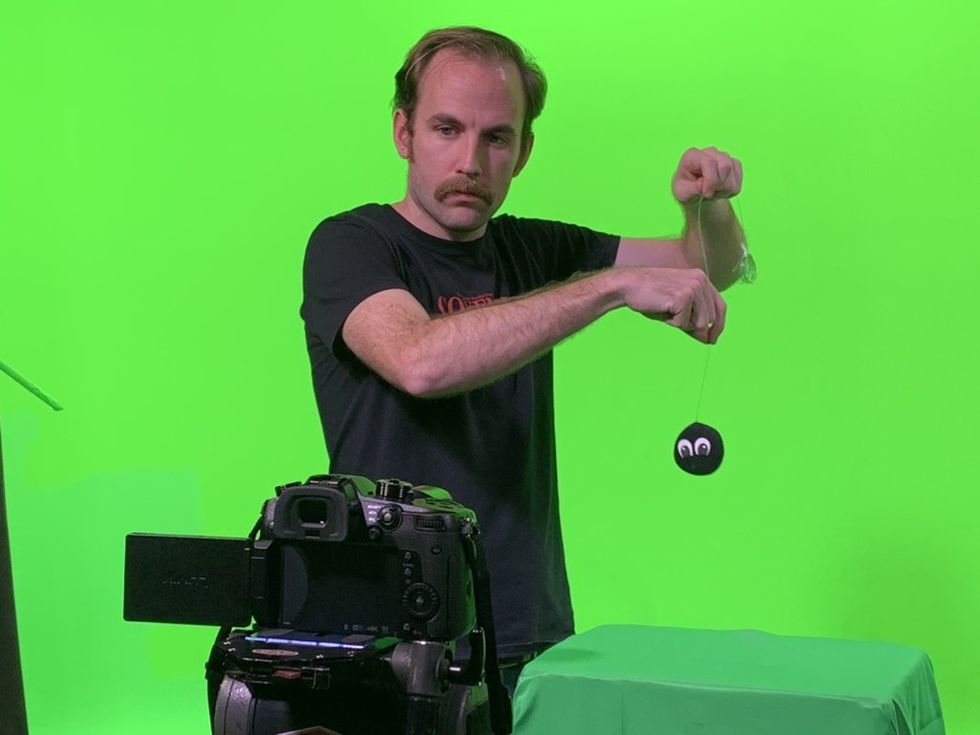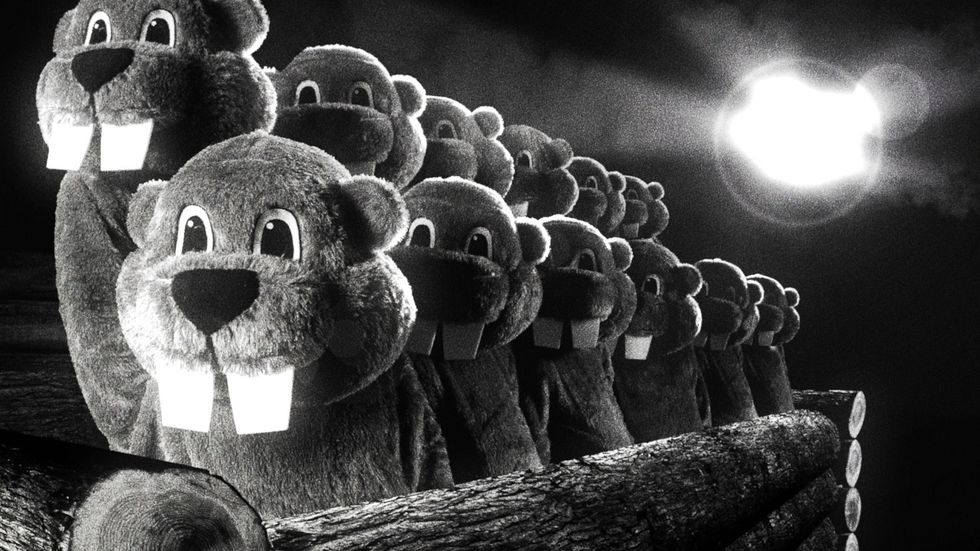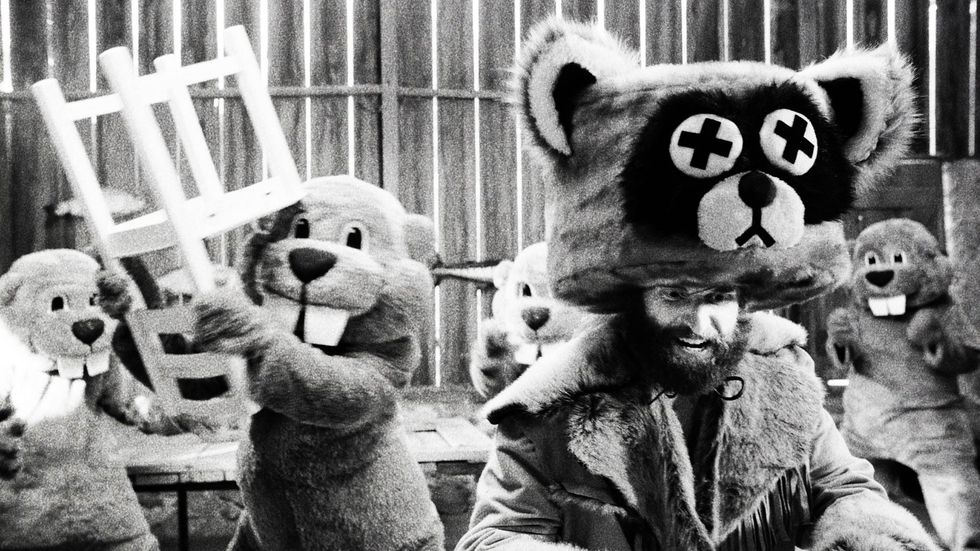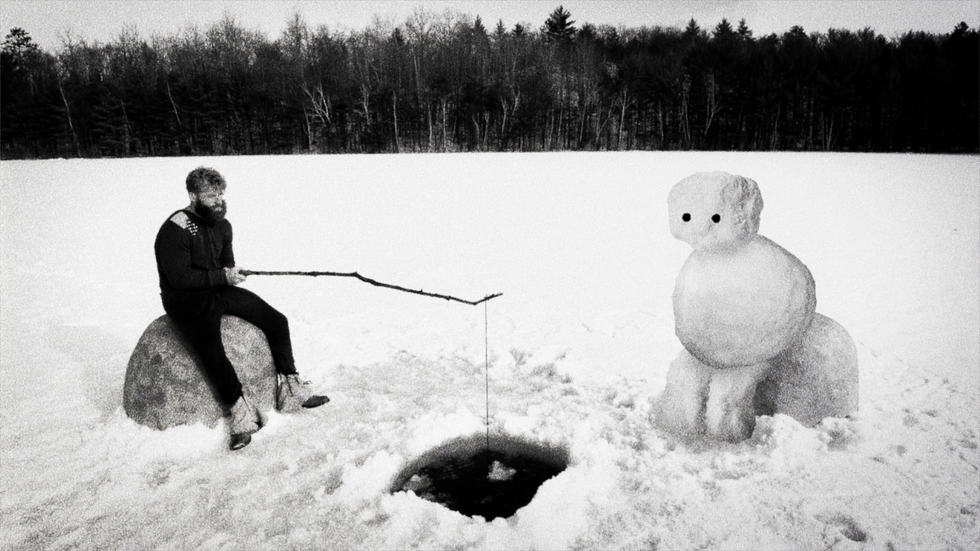The Ride of a Lifetime: How One Man Founded the Best Film Fest You've Never Heard Of
Brendt Barbur's unlikely road to heading up the celebrated Bicycle Film Festival started literally by accident.
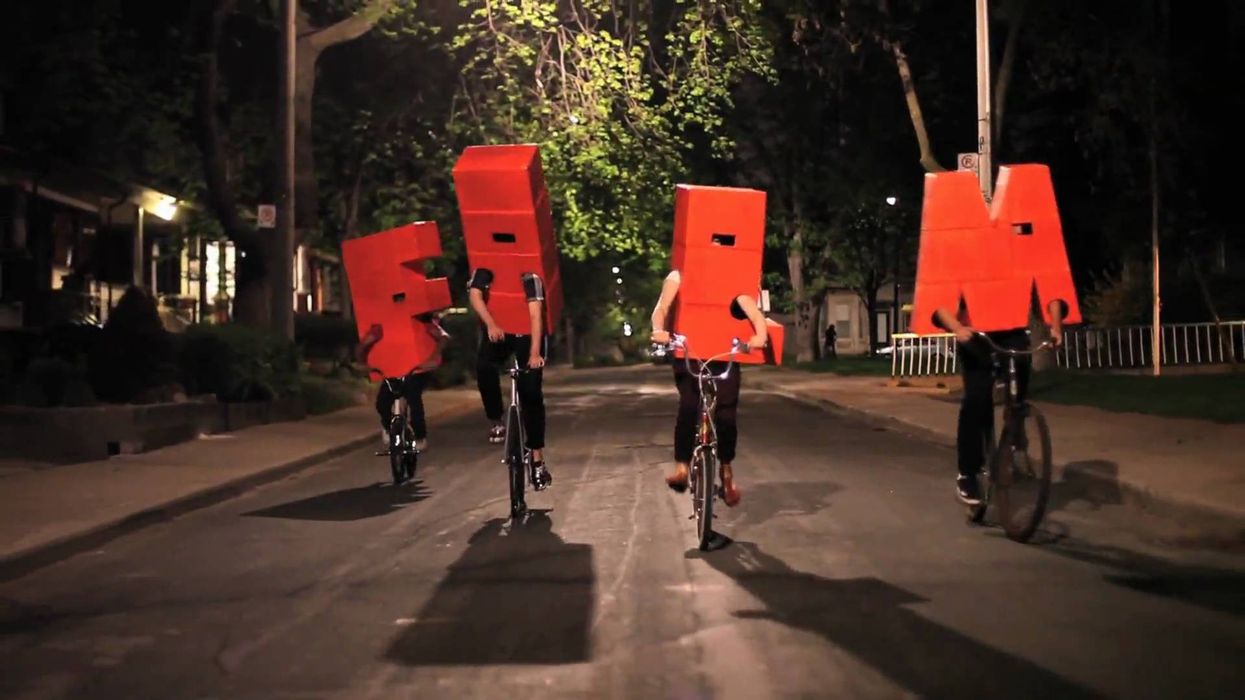
“You ever hear anyone say ‘I’m gonna start a bicycle film festival when I grow up’?” laughs Brendt Barbur, founding director of the incredibly popular Bicycle Film Festival in Brooklyn, New York. “I’m willing to bet that that thought has never been uttered by anyone, ever.”
Nevertheless, fate took the wheel, so to speak. In 2001, mid-twenties Barbur was struck by a bus while riding his bike in the city. The traumatic accident inspired him to launch his own film festival, “to make something positive out of a negative,” he recalled.
BFF is the best, most surprising film festival you’ve never heard of. Now celebrating its seventeenth year, it runs through June 25th in Brooklyn, and will continue internationally in other major cities. You can check out the schedule here. No Film School asked founder Barbur to share his personal take on what has made his festival so successful. Read on, and you’ll wish you’d heard of Bicycle Film Fest sooner.
Bicycles and movies? That bus must have clocked Barbur pretty hard in the head, right? Wrong. Cycling culture and art is actually a potent combination.
“A lot of people might say, ‘I don’t ride bikes, why would I go to a bicycle festival?’” Barbur chuckles. He compares his events to putting a really beautiful plate of food in front of people who don’t realize they’re hungry, but then can’t help grabbing a bite. He sees this as an advantage: people are often surprised by the quality and variety of the films at BFF. “A frequent compliment we get is ‘Wow I didn’t realize the films would be that good!’”
From the get-go, Barbur’s goal has been to “create relevant, moving experiences for people.” Now an eclectic series of over 50 films, shorts and features from 25 different countries, BFF continues to celebrate cycling culture as its universal touchstone. In fact, the fest’s theme has actually expanded beyond film: it now includes bike-related exhibitions, performances, and even a street fair.

“I just did it and people came,” Barbur shrugged. “We sold out our shows the first year, and just kept on going.” Within a few years, word spread and the festival began traveling to other cities throughout the year: first San Francisco, then London and Tokyo. As of 2017, BFF plays in 85 different cities across the planet, from Mexico City to Moscow. “We have a lot more people to appeal to now.”
Luckily, the theme Barbur chose is immensely relatable. He credits a big part of BFF’s success to the universality of bikes, and to the huge community behind biking. “Bicycles are self-empowering. Very often learning to ride a bike is the first, furthest moment away from your parents, any authority figure,” he explains. “But it’s bigger than that: bikes are the perfect vehicle for exploring different cultures and communities.”
Even Barbur himself is surprised, year-after-year, by the stories people have to share about bicycles.
“We consistently start off every year with our star,” he grins, “but each year is different. One common thread is economic freedom in developing countries. A bicycle can save a village in a developing nation: give access to water, trade opportunities, condense time. In London, they have EMT bicyclists who jump into action when ambulances get stuck in traffic. Then there’s the obvious environmental aspects. And the health aspects. The throughline for all these films is generally positive.” He grins again. “And as a result, my own worldview keeps expanding.”

Originally from San Francisco, Barbur lived in New York for three years before his seminal bike accident. His love for film and theater, along with his network of artists, were crucial keys to building his festival. “I already knew the folks in New York’s film, theater and art world: the downtown scene at that time. None of this would have been possible without them. They helped me brainstorm about what I wanted to do, and then connected me with the people I needed to develop my programming.”
One of these artists was Jonas Mekas, founder of NYC’s Anthology Film Archives, known widely as "the godfather of American avant-garde cinema." Other mentors included film titans Albert Maysles and Jim Jarmusch. Barbur knows that taste is subjective, but as he learned from his mentors, advice can be universal: “Watch the films that inspire you, over and over,” Barbur encouraged. “Study them. Ask yourself what moves you about them, and emulate that in your own work.”

Barbur hates name-dropping. He does admit, however, that his festival has attracted a lot of high-profile attention over the years: Leonardo DiCaprio, Jim Jarmusch and Joseph Gordon Levitt are among his fans. But it’s not just about high-profile audience members. Studio Ghibli produced the festival one year, in Tokyo. Spike Jonze has had two films in the festival. YouTube mega-star Casey Neistat and his filmmaker brother Van have made movies for BFF for over a decade.
“We don’t have the budget of other arts organizations or film festivals,” Barbur explained, “but we’ve built relationships with filmmakers and artists who continually come back year after year. And the new talent keeps coming.”
Among this year’s highlights: Mohammed, a German short film about a Syrian refugee who finds solace through bike-riding; Valentina, another narrative short love story based around bikes; Connie Carpenter, the story of an American hero, about the first time that women cyclists were allowed to race at the Olympics; Cut the Cat-Calling, a message from the Women’s Bike Messenger Association; and California Girls 3, the long-awaited BFF sequel in which the California girls “ride hard and attack the world of dating.”
“I’m very proud that we have a bunch of films directed by and/or about women,” Barbur was quick to point out. “Including an amazing animation program by Lucinda Shreiber. It’s still not enough,” he added, “but way more than we’ve had in the past.”
Also worthy of note is this year’s BFF ‘re-cycle’: the Danish documentary A Sunday in Hell. Directed by Jørgen Leth—the legendary experimental filmmaker who mentored Lars von Trier —this epic cycling doc played to sell-out crowds at the very first BFF in 2001. This year, it screened again twice, accompanied by a mesmerizing live score performed by the popular NYC band Blonde Redhead. (Repeat BFF offenders, they, too, are close friends of Barbur.) Again, each show was sold out.
Like every festival with a unique character, you get an immediate feeling of community when you first walk in, a passionate sense of commitment and belonging. People talk to each other in line, and each screening is preceded by a “Bikes Rock!” chant.
The secret to this success? “People need to feel ownership,” Barbur clarified. “When you’re curating something, it’s difficult to maintain quality, to maintain that higher standard. That was my number one challenge: I had to find a way for people to find ownership beyond cycling.”
For Barbur, the answer lay in building relationships—but for a self-proclaimed introvert, that task wasn’t easy. “I wasn’t so sociable before,” he confesses. “But BFF has taught me to engage with people. That’s a wonderful thing about the festival, I get to interact with so many different people outside of my normal circles. I sometimes feel like an ambassador for the United Nations.”

The effort began with Jørgen Leth: back in 2001, when A Sunday in Hell was so well-received, Leth called Barbur to thank him. It was the beginning of a friendship, and since then, Barbur stresses, the key lesson he has learned over the past 17 years is the importance of relationships.
“All too often, we take them for granted,” he stated. “Instead, we need to work at it. Maintain those friendships, stay close to the people who share your passion. When you meet someone you think you might bond with, go have dinner with them. Talk to them about your projects, build a community around that.” He pauses, wheels spinning. “And don’t waste time on the wrong people, either. When they’re wrong, you’ll know. The same way you know when something is right.”
Some of Barbur’s favorite moments have been when he makes his annual dinner for the festival filmmakers, a motley crew of big-time directors sitting down with first-timers. “There are a lot of shared passions, and new things to learn, too. I find that more experienced filmmakers recognize the value of learning how young people think.”
Barbur seems to be enjoying the ride. The only downside? Running a film festival is a lot of work, and the past 17 years have been breathless.
“So many people ask me how I define success,” he reflected. “I say that it’s being able to make a living with something you’re passionate about. But to do that, you have to be really focused, you have to work really hard. And sometimes I wish I had more time for my own films.”
In between BFFs, Barbur has produced close to twenty films of his own. Currently, he’s making an ode to Sunday in Hell—a doc titled The Commentator that he shot with Albert Maysles —with Blonde Redhead tunes as a soundtrack.
“I don’t like to put the focus on myself,” he admits. “But it’s tough to have a day job when you also want to make art. Especially when you’re a filmmaker. Because unless you want to specialize as a gaffer or a DP, etc., you have to be a publicist and a distributor, you literally have to do everything.” He paused. “Doing something on your own is a big fight, putting a film out is like having a baby. Yes, it’s tough. But it’s also exhilarating. And I’ve learned so much from running this festival.”
His last word of advice, for both festival directors and filmmakers alike?
“At the end of the day, regardless of genre or style,” he insisted, “it all comes down to story. I’ve seen so many films, submissions from all over the world, and I’ve learned: some are too long, the story could have been told really well in just a few minutes; others are too short, they often look beautiful but lack story. What we need, as Al Maysles taught us, are the human stories. Those will never go away. So find the story that you wanna tell, not a story that you think the world wants to hear.”
As for the Bicycle Film Festival, even if it’s too late for you to fit BFF into your plans this year, keep it on your radar. As Brendt Barbur is quick to say, “It’s a fun ride.”

